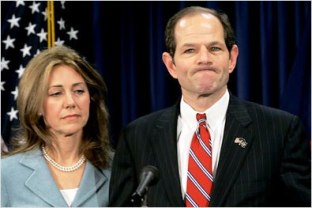When a breach of trust occurs, so many people are affected.

When that breach occurs with an elected official, the implications are more far-reaching. But Eliot Spitzer was no ordinary, elected official. He was elected governor of the state of New York in large part because of his passion for meaningful ethics reform and direct actions against fraud and corruption.
Identified as Client 9 on a wiretapped phone in Washington D.C. where he agreed to meet a prostitute at a D.C. hotel, Spitzer made a statement today in which he apologized to his family as well as the public, but that this was a “private matter.”
But is it really private? Do the private actions of public officials affect other issues of trust?
In 2005, when Boeing CEO Harry Stonecipher was forced to resign after an investigation revealed that he was having an affair with a female employee, Lewis Platt, a non-executive board member said, “It’s not the fact that he was having an affair, but as we explored the circumstances surrounding the affair, we just thought there were some issues of poor judgment that… impaired his ability to lead going forward.”
In other words, if Stonecipher makes these kinds of decisions in his private life, how can we trust his decisions on behalf of Boeing? And that is the real issue whenever trust is broken. It not only affects individuals directly involved, but has a ripple effect that carries over to friends, colleagues, co-workers, anyone and everyone that you work with or are responsible to.
If you happen to be the governor of one of the most populous states in the country, you have, by your own actions, created a serious breach of trust that asks the question: So, what else has he lied about?
But there’s another, more unfortunate aspect to all of this.
Whenever someone with the reputation of Eliot Spitzer; someone who positions themselves as a leading advocate for ethics, who is looked upon as a moral authority; who is, himself, caught in an ethical impropriety, the next response by many people is, “See, I told you so! They’re all corrupt!” And, in the anger of the moment, it’s hard to disagree with that kind of thinking. The only problem is – that’s just as wrong!
When we buy into the group-think that says, “Everybody does it,” “They’re all corrupt,” we affirm the notion that since it seems that no one can live up to a strong, ethical code, then it’s okay if I lie and cheat, too. But once we rationalize and compromise our own standards, we truly have lost our way.
Look, all of us make mistakes. To admit anything less is simply a lie. But we expect more from our leaders… just as our parents and our kids expect more from us.
The best way any of us can deal with such a high profile violation of trust is to recognize that if it can happen to Eliot Spitzer, it can happen to any of us. So, let’s try a little harder to live up to our own higher aspirations. Let’s not give in to the kind of cynical thinking that causes us to rationalize unethical behavior, because, like it or not, each of us is a role model for others in our life.
Comments
Leave a Comment










It seems that once a week or so you hear about another person in office cheating, lying or stealing from the American public. I don’t know what is going on.
I honestly don’t believe that when any politician takes office, whether Democrat or Republican, that they mean to purposefully harm the country. Something happens while they are in the “middle” of everything. Somewhere they start getting greedy and then things start going wrong. It’s too bad there isn’t some way to test how ethical somebody really is before they take office. It’s disheartening to see how many are going down the wrong road while they hold such important jobs working for us.